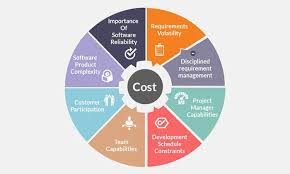Programming advancement task assessments frequently turn out to be incorrect, and there are a few purposes behind this peculiarity. We should investigate a portion of the normal factors that add to assessment blunders:
Inadequately Checked Tasks: In computer programming, project scope characterizes the limits, expectations, and targets of an undertaking. In the event that the extension isn't clear cut or changes fundamentally during improvement, it can prompt erroneous estimations1.
Over-good faith or Extreme Strain: Engineers will more often than not be hopeful about their capacities and misjudge the time required for errands. Moreover, outside strain to comply with time constraints can prompt surged assessments, coming about in inaccuracies2.
Deficient or Problematic Assessment Procedures: The decision of assessment technique matters. Procedures like master judgment, undifferentiated from assessment, parametric assessment, and three-point assessment have their limits. On the off chance that these techniques are not applied thoroughly or on the other hand assuming verifiable information is inconsistent, assessments can be off1.
Insufficient Correspondence and Cooperation: Absence of powerful correspondence between colleagues, partners, and clients can prompt mistaken assumptions and deficient data. Cooperative assessment processes are fundamental for accuracy1.
Unexpected Inconveniences: Programming advancement is intrinsically intricate, and unanticipated issues can emerge during execution. These difficulties, like specialized difficulties or startling conditions, can disturb estimations3.
Evolving Necessities: Nimble advancement frequently includes developing prerequisites. Assuming necessities change much of the time, assessments made from the get-go in the task might become obsolete4.
Defective Authentic Information: Involving past task information for assessment expects that the future will be comparative. In any case, each venture is exceptional, and authentic information may not necessarily line up with the current context5.
To further develop assessment precision, groups can embrace better practices, for example,
Ordinary Re-assessment: Consistently refine gauges as new data opens up.
Cooperative Assessment: Include colleagues, partners, and area specialists in the assessment cycle.
Utilize Numerous Strategies: Consolidate different assessment techniques to cross-approve results.
Gain from Past Ventures: Dissect authentic information to recognize designs and change assessments appropriately.
Recall that while wonderful precision is testing, making progress toward sensible assessments can fundamentally improve project arranging and execution. 🚀


Post a Comment